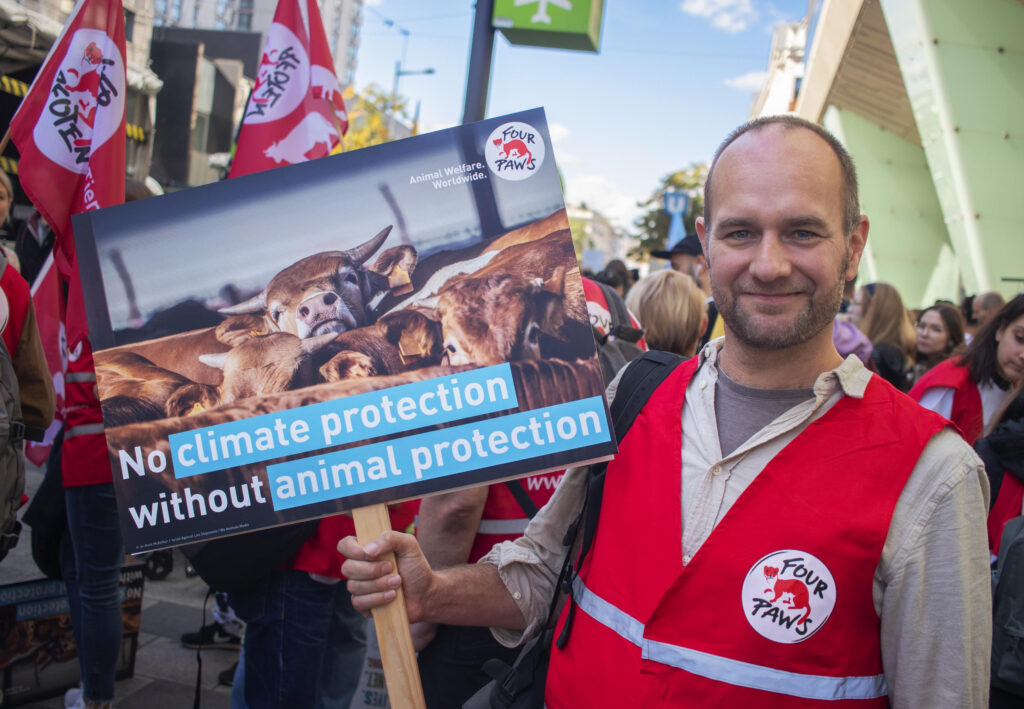At Sustainable Action Now, we believe that true sustainability extends beyond environmental conservation to encompass the ethical treatment and well-being of all living creatures. The global state of animal welfare is a critical barometer of our collective humanity and our commitment to a truly sustainable future. Recent insights, particularly from organizations like FOUR PAWS International, highlight both the urgent challenges and the hopeful progress in this vital area. This report delves into the multifaceted landscape of animal welfare, emphasizing the interconnectedness of animal health, human well-being, and environmental sustainability.
Unveiling the Realities: Insights from FOUR PAWS International
FOUR PAWS International, a leading global animal welfare organization, consistently brings to light the pressing issues faced by animals worldwide. While there isn’t one single “State of Animal Welfare Address” that encompasses all their findings, their ongoing work, press releases, and campaigns collectively paint a comprehensive picture. Their efforts underscore the pervasive nature of animal suffering across various sectors, from the wild to farms and companion animal homes.
A significant focus for FOUR PAWS has been the critical link between animal welfare and global health, particularly in the context of pandemic prevention. They advocate for a “One Health” approach, recognizing that the health of humans, animals, and the environment are inextricably linked. This perspective is crucial, as over 70% of emerging infectious diseases in humans are zoonotic, originating from animals. Practices like intensive animal farming, the commercial wildlife trade, and habitat destruction are identified as major drivers of these disease outbreaks. For instance, the concerning spread and mutation of avian influenza viruses are exacerbated by the crowded, stressful, and unhygienic conditions prevalent in factory farms.
FOUR PAWS actively campaigns against high-risk practices such as fur farming, which not only inflicts immense suffering on animals but also poses significant public health risks. Their advocacy extends to urging governments and policymakers to embed animal welfare standards into national plans and international agreements, recognizing that improving how we treat animals is a prerequisite for protecting human health and preventing future pandemics.
Beyond disease prevention, FOUR PAWS’s work highlights numerous other areas of concern:
- Commercial Wildlife Trade: The illegal and often brutal trade of wild animals, particularly big cats, continues to be a significant issue. Many big cats are illegally kept in captivity, enduring deplorable conditions. Organizations like FOUR PAWS conduct vital rescue missions, transferring these animals to sanctuaries where they can live out their lives with dignity. This ruthless trade not only causes individual animal suffering but also contributes to biodiversity decline.
- Stray Animal Populations: Millions of stray dogs and cats worldwide face immense suffering due to hunger, disease, and lack of care. Humane solutions, including large-scale sterilization projects and community engagement, are crucial to managing these populations and improving their welfare.
- Farm Animal Welfare: The vast majority of animals raised for food live in conditions that severely compromise their welfare. Issues such as extreme confinement (e.g., gestation crates for pigs, battery cages for hens), routine mutilations (e.g., beak trimming, tail docking), and rapid growth rates designed for profit rather than animal health lead to widespread pain, injury, and distress. FOUR PAWS, alongside other organizations, pushes for legislative reform and consumer awareness to transition towards higher welfare farming systems.
- Animals in Entertainment: The exploitation of animals for entertainment, including bear dancing, bear baiting, and the use of wild animals in roadside zoos and circuses, remains a persistent problem. These practices often involve cruel training methods, inadequate housing, and a complete disregard for the animals’ natural behaviors and psychological well-being.
The Broader Landscape of Animal Welfare Challenges
The challenges highlighted by FOUR PAWS are part of a larger, global tapestry of animal welfare concerns. These issues are complex, often intertwined with economic pressures, cultural practices, and a lack of public awareness or legal protection.
- The Five Freedoms: A foundational concept in animal welfare, the “Five Freedoms” provide a framework for assessing and improving animal well-being:
- Freedom from hunger or thirst.
- Freedom from discomfort.
- Freedom from pain, injury, or disease.
- Freedom to express normal behavior.
- Freedom from fear and distress. Unfortunately, for countless animals, these basic freedoms are routinely denied.
- Animal Abuse and Neglect: From individual acts of cruelty to systemic neglect in large-scale operations, animal abuse remains a pervasive issue. This includes animal fighting, which forces animals into brutal combat, often with severe injuries or death. Legal frameworks and public reporting mechanisms are vital, but enforcement and public education are equally critical. For more information on the severe impact of animal abuse and neglect on wildlife, visit our dedicated section on abuse of animals and wildlife.
- Wildlife Trafficking and Habitat Loss: Wildlife crime is a multi-billion dollar industry, driving many species to the brink of extinction. Poaching for horns, ivory, and other body parts, coupled with the demand for live exotic pets, devastates wild populations. Simultaneously, habitat loss due to deforestation, urbanization, and climate change further threatens countless species, disrupting ecosystems and forcing animals into increasingly precarious situations.
- Marine Animal Welfare: Underwater noise pollution from shipping, ghost fishing gear (abandoned nets and lines), and unsustainable fishing practices pose significant threats to marine life. Whales, dolphins, and other marine mammals rely on sound for navigation and communication, and increasing noise levels severely impair their ability to survive.
Sustainable Actions for a Kinder Future
Addressing these challenges requires a multi-pronged approach, focusing on education, advocacy, policy change, and responsible consumer choices. Sustainable Action Now champions initiatives that promote:
- Legislative Reform: Advocating for stronger animal protection laws, better enforcement, and the inclusion of animal welfare principles in national and international policy frameworks. This includes banning cruel practices like fur farming, extreme confinement in agriculture, and the commercial trade of endangered species.
- Consumer Awareness and Demand: Educating the public about the impact of their choices on animal welfare. By demanding higher welfare products (e.g., certified humane eggs and meat), supporting responsible tourism, and avoiding products linked to animal exploitation, consumers can drive significant market change.
- Support for Sanctuaries and Rescue Organizations: Providing financial and volunteer support to reputable animal sanctuaries and rescue groups that offer a safe haven for abused, neglected, or displaced animals.
- “One Health” Implementation: Promoting and integrating the “One Health” concept into public health strategies, recognizing that preventing pandemics and improving human health requires a holistic approach that prioritizes animal welfare and environmental protection.
- Humane Population Management: Implementing ethical and effective strategies for managing stray and feral animal populations, focusing on sterilization, vaccination, and responsible adoption programs.
- Conservation Efforts: Supporting organizations dedicated to protecting natural habitats, combating wildlife trafficking, and mitigating the impacts of climate change on biodiversity. Our commitment to ending the abuse of animals and wildlife is unwavering, and we encourage you to explore more about these critical issues and how you can help at https://sustainableactionnow.org/category/abuse-of-animals-wildlife/.
The Path Forward
The “State of Animal Welfare Address” by organizations like FOUR PAWS International serves as a vital call to action. It reminds us that our responsibility to animals is not merely a moral obligation but an integral part of building a resilient and sustainable world for all. By understanding the challenges and actively supporting initiatives that promote compassion and ethical treatment, we can collectively work towards a future where every creature lives free from suffering and with the dignity it deserves. This is the essence of sustainable action now.



